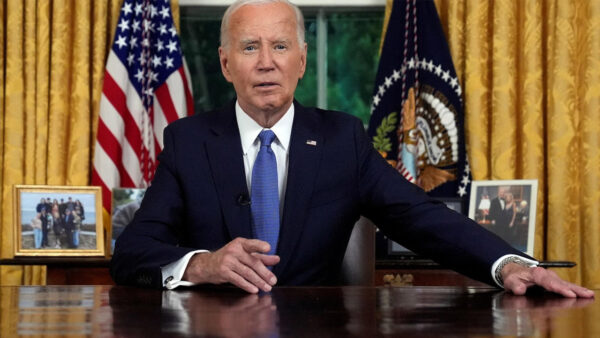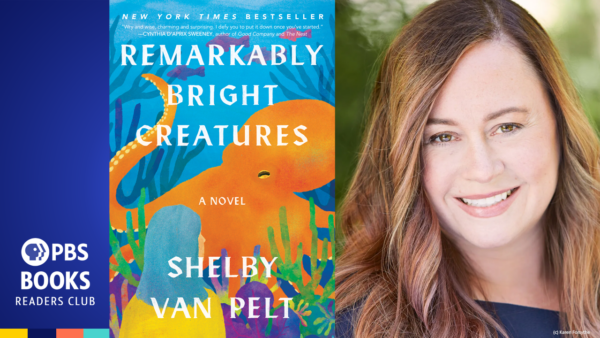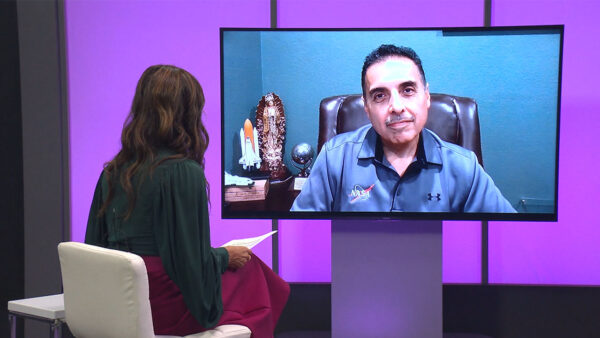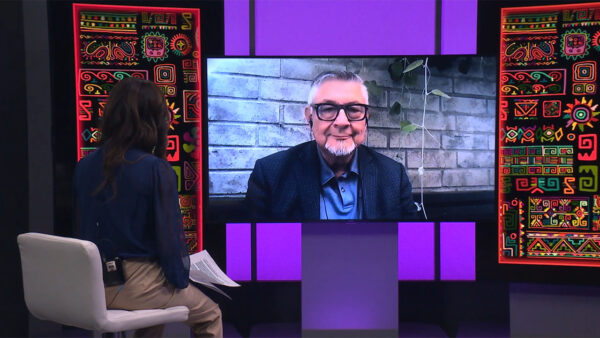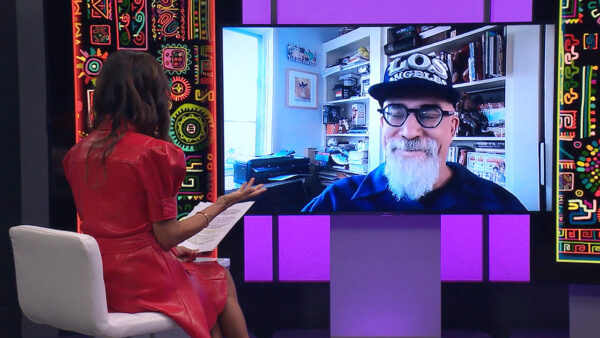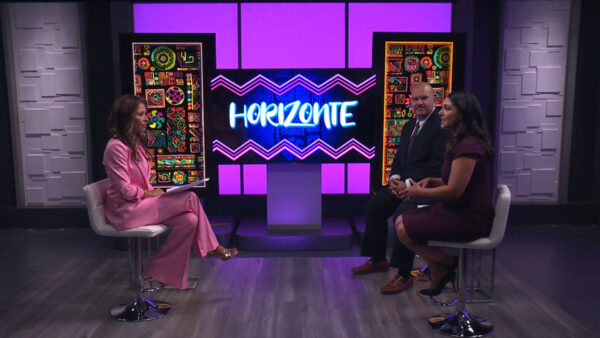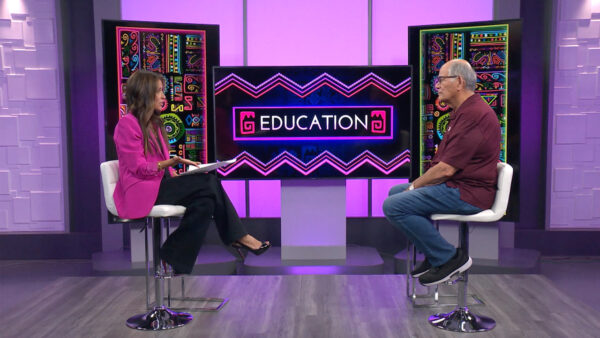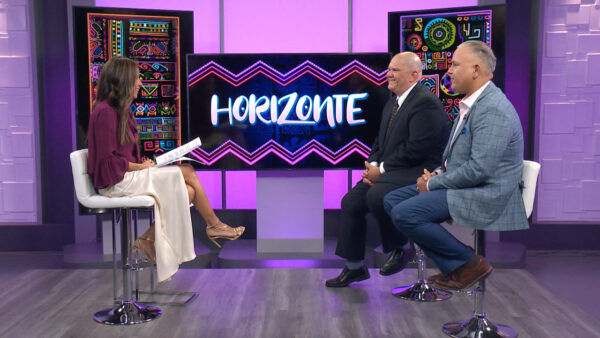In 1989, a group of Latino educators founded the Arizona Hispanic School Administrators Association. The organization has led the way in developing aspiring Latino school administrators. The Nosotras program prepares Latinos to lead districts as superintendents.
President of AHSAA and Superintendent of the Phoenix Elementary School District, Dr. Myriam Roa, and Principal at J.B. Sutton Elementary School in the Isaac Elementary School District and Nosotras Program Founder, Dr. Juliet M. Carrion, discuss the AHSSA and the Nosotras program
Visit the website today!
Jose Cardenas: Thank you for joining us. The Arizona Hispanic school administrators association, AHSAA, was founded by a group of Latino educators in 1989. One objective is to develop Latino school administrators. Nosotras is a program preparing Latinas to lead districts as superintendents. Joining me to talk about AHSAA mission and the Nosotras program are Dr. Myriam Roa, president of AHSAA and president of the Phoenix Elementary School District. Also here is Dr. Juliet Carrion, principal at JV Sutton Elementary School in the Isaac Elementary School District in Pheonix. Dr. Carrion is also the founder of the Nosotras program. Welcome to both of you. Thank you for joining us. Let's start first Dr. Roa with a description of AHSAA, and what the mission was and is.
Dr. Myriam Roa: The AHSAA association of Hispanic School Administrators has an interesting beginning. My understanding is that this idea that we wanted to support aspiring administrators, Latinas, to become administrators, we had to raise the money to help them go back to school to get their certificate. Dr. Jacob Chavez, senior, sold a steer from his rancho so we could raise money through a raffle for our first set of scholarships. From those humble beginnings we now have an organization that meets once a year for a robust conference. Our mission is to promote equity and excellence for all students in Arizona and to focus on issues with students and minorities, students in poverty, certainly welcome all administrators who will serve these populations.
Jose Cardenas: Let's talk about the conferences and then about how you address some of the issues. These are once a year. How many attendees do you have?
Dr. Myriam Roa: Every year we get bigger. We certainly like to see at least 100, but we exceeded our goal and got close to 200 this year. Typically somewhere between 100 and 200 attendees. That doesn't include all of the ancillary activities where we have students performing and share and networking activities with vendors. The actual attendees that go to the workshops, about 200.
Jose Cardenas: What do they learn?
Dr. Myriam Roa: We have different sessions. It might be interviewing techniques if you're going to aspire to be a principal or assistant principal or district office or superintendent for a business services. We have different sessions for different interests on what to look for or when you're searching for that job as administrator. Certainly the latest in what are effective educational practices for, for instance, English language learners and what model we would like to promote to have the students achieve the goals of becoming proficient in English. There's always something new on the horizon with legislation affecting the students so we talk about that.
Dr. Myriam Roa: I know one of the new things on your horizon is the Nosotras program that you started. As I understand it arose out of your dissertation. You have your book here. Tell us about it. What was the focus and how did that lead to the creation of Nosotras?
Dr. Juliet Carrion: The title is, "Latinos as Superintendents: Voices From the Field Hope for the Future." It all stems from the dirt of representation of Latina superintendents in Arizona. At the time of my study there were five Latina leaders that participated in the study, and there was only one that was actually in the superintendencey.
Jose Cardenas: So as part of your study did you identify issues or concerns that perhaps make it more difficult for Latinas in particular to achieve those positions?
Dr. Juliet Carrion: Absolutely. The two that stood out were gender and ethnicity were challenges for the participants in my study. They shared their stories with principals at the time. There were 12 that participated. These five Latina leaders from the district level shared their stories of their challenges that they faced.
Jose Cardenas: Give us an example of some of the challenges.
Dr. Juliet Carrion: They were dealing with just being a female, how difficult it was to get their foot in the door into a central office type position. That was an example.
Jose Cardenas: Is there anything peculiar to Latinas, to Hispanics in general, that makes it more difficult to ascend the administrative ladder?
Dr. Juliet Carrion: Ethnicity in itself just having brown skin, that was according to the research, gender and ethnicity made it difficult to be considered for a position. To really begin to look at that person and whether or not she had the skill set to be in that role.
Jose Cardenas: You did your dissertation in 2009.
Dr. Juliet Carrion: That's when I defended, yes.
Jose Cardenas: This led to Nosotras. Tell was that is.
Dr. Juliet Carrion: It's --
Jose Cardenas: Meaning us.
Dr. Juliet Carrion: Yes. Means we. Female gender. It resulted from my doctoral work and I'm very appreciative of the doctor who supported me, took me under his wing after I presented to the AHSAA organization about my research, and so when you say founder, I feel like we co-founded this workshop because he truly helped us to be able to support the workshop.
Jose Cardenas: What do participants get out of the workshop? What's the format? How do they benefit?
Dr. Juliet Carrion: We offer various professional development training. For example, how to have difficult conversations in our leadership positions, how to analyze our data be our student achievement, looking at our budget, how we're going to spend our money wisely. And also like Dr. Roa mentioned, interviewing techniques and how to prepare for that next higher level position.
Jose Cardenas: Dr. Roa, you and I were talking off camera, one of the things that your organization does is raise money to provide scholarships that help people obtain these additional skills and credentials. Talk about that.
Dr. Myriam Roa: Well, the last couple of years we went from having a $5,000 scholarship awarded to nominees that were a program or wanted to be in a program to get their master's or doctorate. Typically we have one from the southern region of Arizona and one from the middle and northern parts of Arizona. So this year we were able to offer more. I believe that we have two from each, the north and the south of Arizona, so as we raised the money for the scholarships our purpose is to get it back out again, so the more successful we are with getting our networks and sponsorship and our golf tournament to raise the money the more scholarships we want to offer. What that does is provide sort of a springboard for an administrator to have the credentials that are required typically to apply for a higher level job in administration.
Jose Cardenas: So part of it is expanding the pool of people eligible for those positions.
Dr. Myriam Roa: Yes. We call it building capacity for administrators.
Jose Cardenas: Also through programs such as Nosotras you're giving them the skills to really be successful.
Dr. Myriam Roa: Yes. I was honored to be one of the participants of the Nosotras workshop to talk to potentially Latina superintendents. When someone comes up and says, you really made a difference making me feel like I could do it too, it's something I could pursue because certainly it is possible from showing up and saying yes, I'm a Latina and I'm a superintendent and you can do it too.
Jose Cardenas: Dr. Carrion, you have had that experience from your own experiences you know that you're serving as a role model to other people who may not otherwise have thought this was within their reach.
Dr. Juliet Carrion: Absolutely. Leading a school and working with teachers, I have had teachers come to me and say that, wow, they have really been inspired just watching me walk in my shoes and lead a school. I have children looking at me and I can just tell by their faces that they can't believe that a Hispanic woman, someone that mirrors them, is actually the school principal. So I get very excited about inspiring others, motivating others like Dr. Roa stated, and to help encourage women to move up to that higher level position so that they too can also be role models for our children because we have very few in the superintendency. I believe the number is about of 220 superintendents 220 there are only roughly 20.
Jose Cardenas: We're delighted you were able to talk to us. Thank you.
Dr. Myriam Roa:President of AHSAA, Superintendent of Phoenix Elementary School District; Dr. Juliet M. Carrion:Principal of J.B. Sutton Elementary School in Isaac Elementary School District, Nosotras Program Founder;
